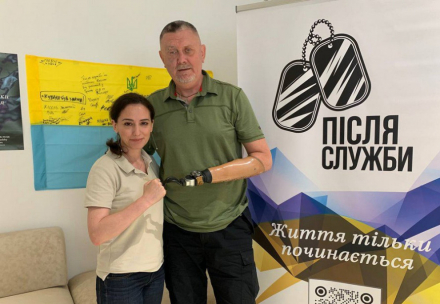After discharge from service, veterans immediately face many challenges: they need to collect a million certificates at once, pay for costly rehabilitation, find a new job, and devote time to their family… Often, service members lose their skills in a civilian profession and, in addition, face misunderstanding from their closest relatives.
In such cases, help comes from people who know what hurts veterans and where to find solutions as quickly as possible. One such helper is the “After Service” Foundation, which has been systematically working with former service members since late 2022 and provides guidance that covers all the most important areas of life. Case manager of the “After Service” Foundation Oleksandr Vitsan and the foundation’s project manager Maryana Kovalenko told us how to get support and what kinds of cases the specialists handle.
Where to apply
To receive assistance, veterans must fill out a special form on the foundation’s website, leave their contact details, and describe the problem. After that, a case manager responsible for a certain area is assigned to the person — they contact the veteran, assess the situation, and start working on the request. You can also visit the foundation’s office in Kyiv at 25/49 Pochainynska St. Please come Monday to Friday from 10:00 to 17:00 after a prior call at +380 50 016 1960.
“We help in areas such as healthcare, rehabilitation, legal aid, employment, education, retraining, psychological support, and temporary housing,” says Oleksandr Vitsan. “Recovery time is individual for each veteran, and everyone has different needs. Some undergo rehabilitation quickly, while others need more than a year; some legal appeals can be resolved in a month, others take a year of court proceedings. The same goes for education.”
Help with treatment and rehabilitation
According to Oleksandr, veterans most often apply with medical and legal issues. Yet, like it or not, treatment will always be the first and foremost priority. The “After Service” Foundation not only refers veterans to various medical institutions but also takes on the cost of services.
“In the field of rehabilitation and healthcare, we help when the state can no longer offer anything. First, the service member undergoes treatment provided to them in military hospitals free of charge, but unfortunately there are many complex cases when state rehabilitation is not enough for the veteran. In such situations, we look for ways to help, negotiate with private rehabilitation centers that get people back on their feet. It’s large sums of money, but they affect the quality of life of the veteran and their family,” says Maryana Kovalenko.
The foundation has partnerships with some rehabilitation centers, and they can provide free treatment or offer discounts. In other cases, the foundation pays for treatment. However, everything depends on the specific situation — what services the service member needs and what financial capacity is available at the time of the request.
“For severely wounded service members, we seek funds abroad; we have friends — a charitable foundation in Denmark that raises donations specifically for treating our veterans. Sometimes people come to us and we don’t have the required amount immediately, but we start a fundraiser and after some time provide assistance,” the project manager explains. “For example, rehabilitation — even with a discount — at one of the best rehab centers costs 4,300 UAH per day, and a veteran needs three months. These are very large sums — sometimes we can help right away, sometimes we send a person for rehabilitation in a month or two.”
Most often, service members seek help with prosthetics, eye problems, internal organ damage, and joint replacement surgeries. There are also cases when rehabilitation is provided to paralyzed defenders.
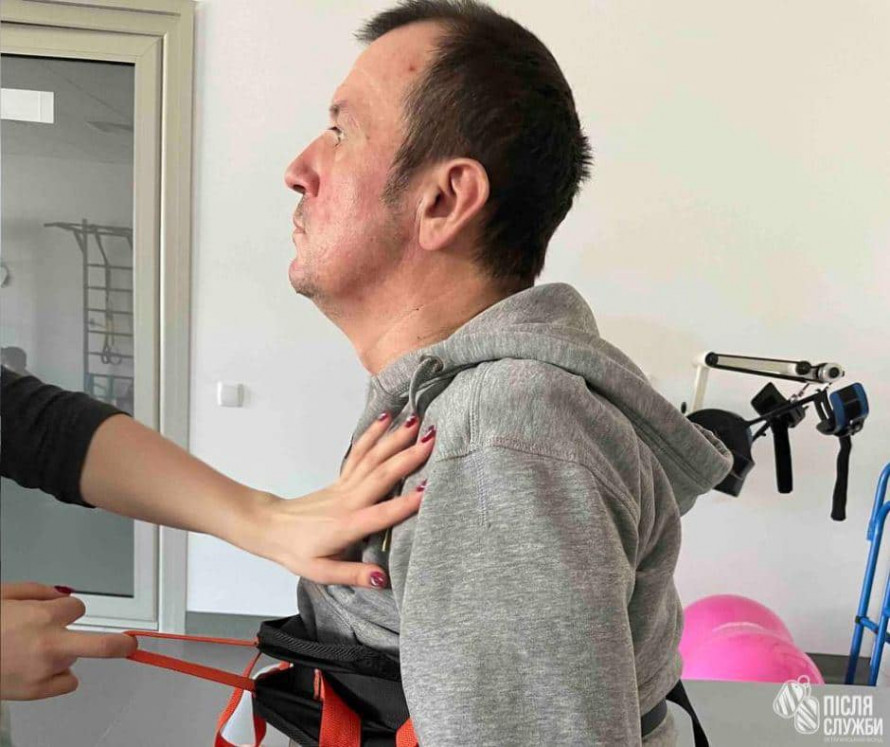
Psychological counseling for veterans and the families of service members
Requests related to psychological issues are also redirected by case managers to specialists. People with urgent needs are referred to hotlines, and those with severe cases — to partner clinics. The foundation is also currently looking for a psychologist who will provide consultations to veterans on site.
“Service members come with different problems, most often PTSD. But time at the front never passes without a trace. Sometimes a wife starts making remarks because she sees her husband has returned different; changes in character have occurred. At times there are destructive consequences that need treatment,” says Oleksandr Vitsan.
Foundation specialists advise relatives not to pity the person excessively and not to restrict their independence — give them the understanding that they can always ask for help, but also have the right to act on their own.
“You can’t fit everyone into a single format. Some need time to recover, while others mustn’t be left alone with their problems — they should be directed immediately to different organizations, given a goal, offered to obtain new education, and referred to psychologists. It all depends on the person’s character,” says the case manager of the “After Service” Foundation.
Often veterans can only trust their brothers-in-arms who have similar experiences and understand each other like no one else. That’s why the foundation holds monthly meetings of the veterans’ club “Veteran Connect.” There, service members living in the capital can talk, exchange experiences in solving problems, and join the veteran community. Such events are announced separately on social media.
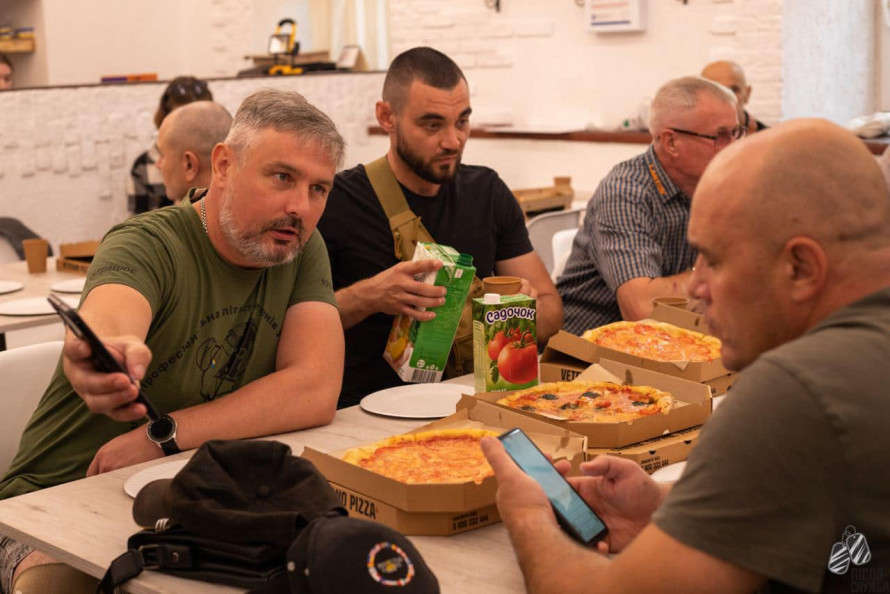
In addition, the foundation hosts support groups for relatives of service members who are at the front. These are mostly wives who find it difficult to cope with the absence of their closest person.
“They last about two months, with 12–14 meetings. We’ve had both offline and online groups. Each time we announce a new intake so that girls and women can learn about the opportunity and sign up. We plan to gather the next group in August–September,” announces Maryana Kovalenko.
Legal aid, education, and employment
Legal assistance for service members is one of the most in-demand services. Veterans seek help regarding payments, pensions, combat pay, obtaining combatant status, and various documents from their units.
“Many requests also relate to unauthorized absence from a unit. If a consultation is needed, we redirect people to our partners — these are ‘Legal Hundred’ and ‘Vesta.’ If an attorney is necessary, we pay for their services and the lawyer handles the service member’s case,” says Oleksandr Vitsan.
In addition, former service members reach out when they need education, retraining, or cannot find a new job on their own. “Here we also take an individual approach — the service member chooses a specialty that interests them, and we study what the market offers. We pay for some training, and for some the Employment Center can provide a voucher up to 30,000 UAH. There are more than 140 specialties available there. Sometimes training takes place at the foundation,” the case manager says.
For example, on a volunteer basis, an IT specialist conducted testing training for service members. There is also a conversational club every Monday for those learning English. It is led by an American veteran volunteer — the training has been running for a year, and veterans are improving their English level. Participants are currently on break; meetings are planned to resume in August–September.
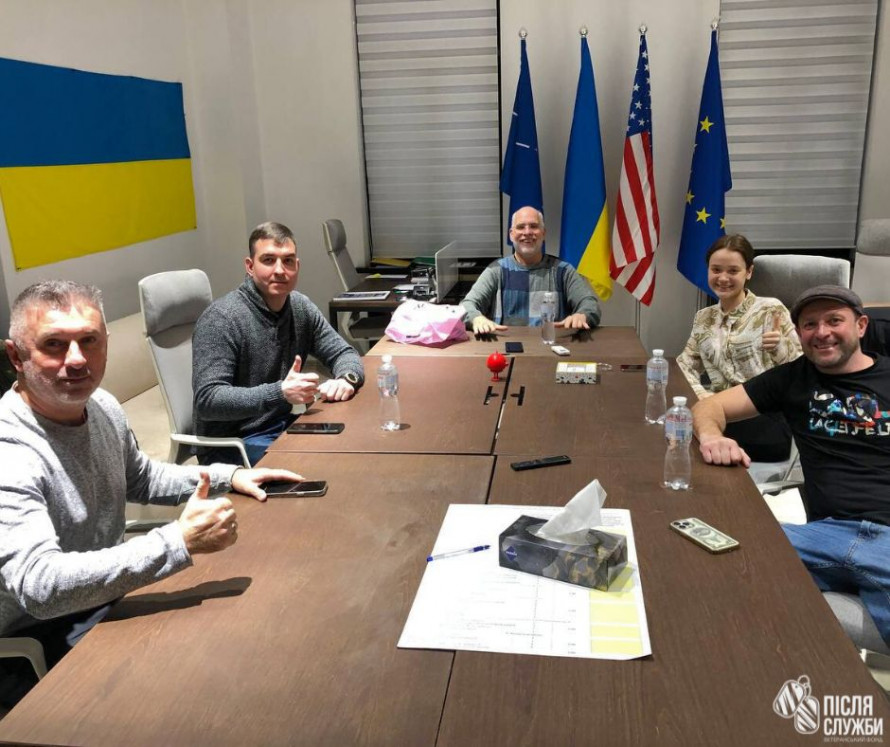
The final stage of a veteran’s recovery is employment. According to Oleksandr Vitsan, today the labor market in Ukraine has declined, and wages are not keeping up with the times. However, service members are now becoming a “valuable asset” for businesses.
“Many people at enterprises are being mobilized, and sometimes it reaches a critical point when the enterprise can no longer function. That’s why they’ve started to ‘compete’ for service members. But not all employers implement programs for veterans — often they exist only in theory,” says Oleksandr Vitsan. “Over time, the positive dynamic is growing; there are progressive employers who have started moving in this direction.”
Accommodation for service members in Kyiv
Another opportunity that veterans can use through the “After Service” Foundation is temporary accommodation in Kyiv. The foundation rents a six-bed room in a hotel at the railway station. Veterans waiting for a train can stay for one or two nights, use the amenities, and do their laundry.
Recently, longer stays have also been provided, as many service members come to Kyiv to undergo military medical commission (VLC).
“Previously, hospitals provided accommodation for the guys, but now this option has been canceled, and they look for housing on their own. So we also host them — sometimes veterans stay in the room for up to a week,” says Oleksandr Vitsan. To request housing, you also need to fill out the form on the ‘After Service’ website.
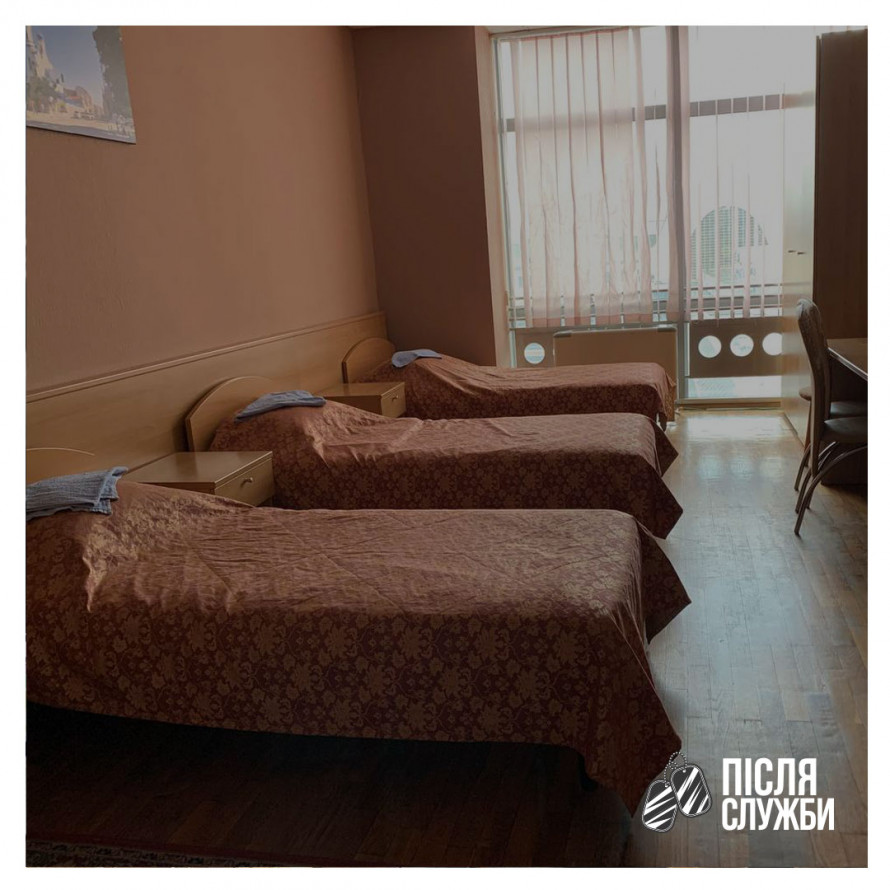
Training for patronage services
One of the goals the foundation has set for itself is to reduce cases of suicide among veterans. Currently, such statistics are not tracked, but specialists know of cases when service members could not withstand the pressure and took their own lives.
“We try to work proactively — to provide a psychologist in time, resolve legal issues, offer education and employment. If the entire chain works, the percentage of suicides will be reduced,” says Oleksandr Vitsan. “To prevent such cases, society must be prepared and people must be given tools for returning to civilian life.”
One of the foundation’s major projects is training patronage (support) services within units. They are not yet everywhere, but work on their establishment and training is underway — the process is overseen by the Ministry of Defense.
“When a person is just entering military service, they already need social support so they know where to turn in case of injury, what the action algorithm will be if legal assistance is needed, and what the family should do in different cases. That’s exactly why we train social support workers of units, unit psychologists, and conduct several-day trainings that cover topics of medical rehabilitation, prosthetics, psychological assistance, and cooperation with the Coordination Center for the Treatment of Prisoners of War,” says Maryana Kovalenko.
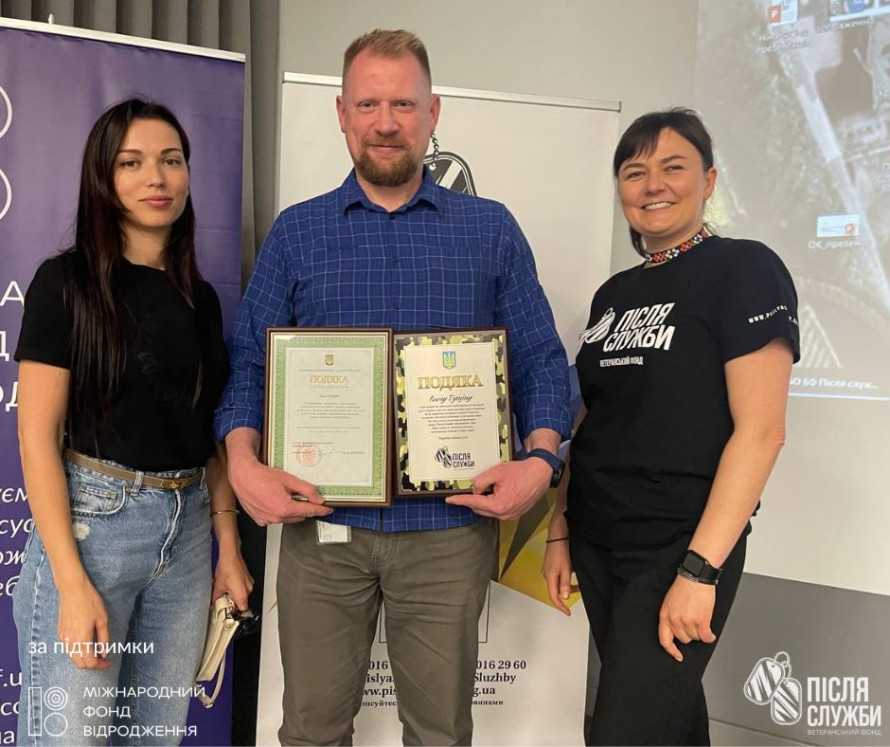
Currently, the process of creating patronage services has been assigned to commanders — according to the foundation’s representatives, some are already undergoing training; some create such services just “for show,” and others are not yet addressing this issue at all. However, more and more service members are turning to “After Service,” asking to conduct training for their staff.
And only when service members and veterans can truly receive timely help and support from society will they feel protected, the “After Service” foundation believes.
We remind you that in Uzhhorod, veterans, service members, and their families are being rehabilitated with the help of dance.


